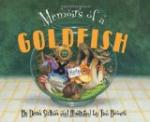“Ever played in hard luck?” I queried.
“I? Sure, I have,” answered Hastings cheerfully. “And I wouldn’t worry much if it came my way again. I could manage to get along pretty comfortably on less than half I’ve got. I like my home; but we could be happy anywhere so long as we had ourselves and our health and a few books. However, I wasn’t thinking of myself. I’ve got a friend in the brokering business who says it’s the millionaires that do most of the worrying anyhow. Naturally a man with a pile of money has to look after it; but what puzzles me is why anybody should want it in the first place.”
He searched along a well-filled and disordered shelf of shabby books.
“Here’s what William James says about it:
“’We have grown literally afraid to be poor. We despise any one who elects to be poor in order to simplify and save his inner life. We have lost the power of even imagining what the ancient idealization of poverty could have meant—the liberation from material attachments; the unbribed soul; the manlier indifference; the paying our way by what we are or do, and not by what we have; the right to fling away our life at any moment irresponsibly—the more athletic trim, in short the moral fighting shape.... It is certain that the prevalent fear of poverty among the educated class is the worst moral disease from which our civilization suffers.’”
“I guess he’s about right,” I agreed.
“That’s my idea exactly,” answered Hastings. “As I look at it the curse of most of the people living on Fifth Avenue is that they’re perfectly safe. You could take away nine-tenths of what they’ve got and they’d still have about a hundred times more money than they needed to be comfortable. They’re like a whole lot of fat animals in an inclosure—they’re fed three or four times a day, but the wire fence that protects them from harm deprives them of any real liberty. Or they’re like goldfish swimming round and round in a big bowl. They can look through sort of dimly; but they can’t get out! If they really knew, they’d trade their security for their freedom any time.
“Perfect safety isn’t an unmixed blessing by any means. Look at the photographs of the wild Indians—the ones that carried their lives in their hands every minute—and there’s something stern and noble about their faces. Put an Indian on a reservation and he takes to drinking whisky. It was the same way with the chaps that lived in the Middle Ages and had to wear shirts of chainmail. It kept ’em guessing. That’s merely one phase of it.
“The real thing to put the bite into life is having a Cause. People forget how to make sacrifices—or become afraid to. After all, even dying isn’t such a tremendous trick. Plenty of people have done it just for an idea—wanted to pray in their own way. But this modern way of living takes all the sap out of folks. They get an entirely false impression of the relative values of things. It takes a failure or a death in the family to wake them up to the comparative triviality of the worth of money as compared, for instance, to human affection—any of the real things of life.




